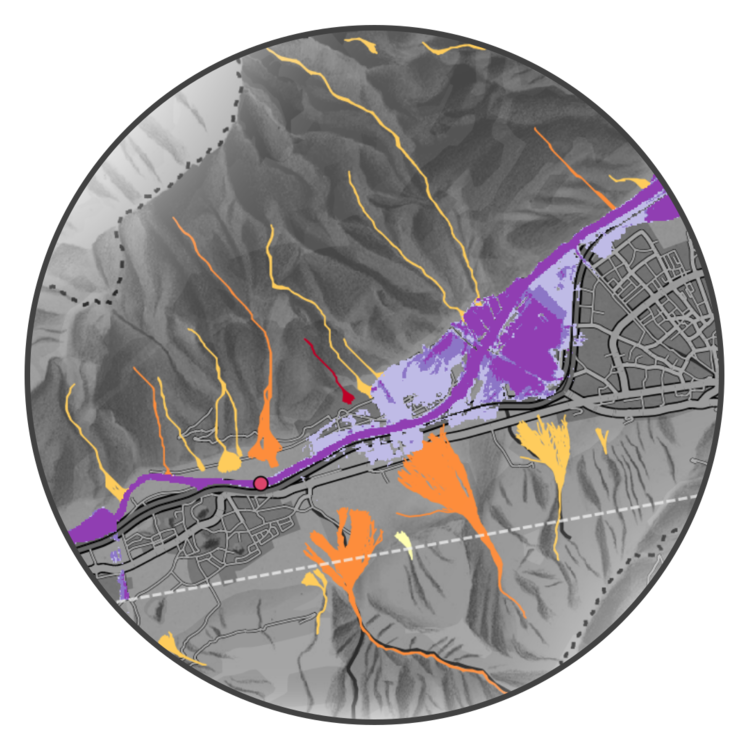
Despite their transformative potential, the effective utilization of System-of-Systems approaches is challenged by inherent uncertainties present in all aspects of these complex sub-systems. These uncertainties arise from various sources, including data quality, model accuracy, input variability, and underlying assumptions. For example, sensor data may be noisy or incomplete, models may be based on simplified assumptions that do not fully capture the complexity of the real world, and inputs such as environmental conditions or human behavior can be highly variable and unpredictable. Understanding how these uncertainties propagate through the interconnected components of a complex system is crucial for improving the reliability and robustness of the insights and decisions derived from these systems.
Vision
To address these challenges, our research explores new ways of uncertainty quantification and propagation (UQ & UP) in complex, time-dependent systems by applying novel network analytic and algebraic methods. This opens up new approaches for addressing the multidimensional challenges associated with UQ in complex systems.
We demonstrated that the functional relationships within a complex multi-physics problem could be effectively represented as a network. In such a network, nodes represent parameters, values, and equations of the underlying physical models, while edges depict their connections. Thereby, the type and amount of available information significantly influence how uncertainty can be quantified and propagated, as well as the form in which this information is presented to decision-makers.
In a current research endeavor, we explore how network analytic methods could provide a more robust and efficient approach to characterize and propagate both aleatory and epistemic uncertainties in complex systems because these methods allow for a detailed representation of the complex interdependencies and dynamic interactions within the system. Network models explicitly incorporate the underlying physics and causal relationships, leading to more transparent and interpretable results. Furthermore, network science provides a comprehensive framework that captures both the detailed, localized, microscopic effects of uncertainties and their broader, system-wide macroscopic implications.
Furthermore, we are advancing the state-of-the-art by facilitating long-term sustainability, which requires a shift from reactive to proactive planning. We aim to develop novel methods to support short-term management and operational decisions, as well as long-term strategic planning. Thereby, the ability to link models from different disciplines is crucial to quantify the risk and resilience of complex systems (e.g. against natural hazards) as well as for decision-makers which need to predict future scenarios to identify sustainable policies.
Projects
This project is centered around field research in Japan, enabling three motivated Princeton students to digitally document historic structures, engage with local experts, and contribute to global efforts in preserving cultural heritage against environmental threats.
The aim of this project is to collaborate with industry partners to develop comprehensive, system-level approaches for evaluating the resilience of large-scale infrastructure systems to climate change hazards. This is an urgent need as current industrial practices primarily utilize asset-level performance indicators to make crucial systemwide…
This research envisions a comprehensive approach to enhance climate risk assessment and resilience planning, responding to the urgent challenges posed by climate change. The project is structured into three primary work packages: developing a simulation engine, advancing cloud computing simulations, and





